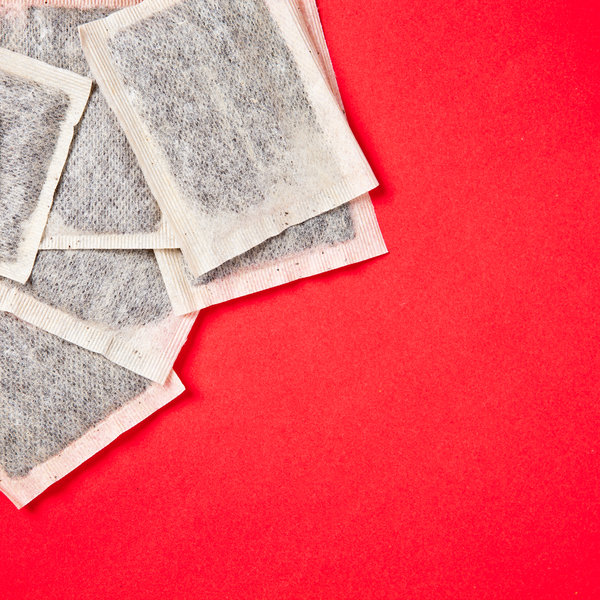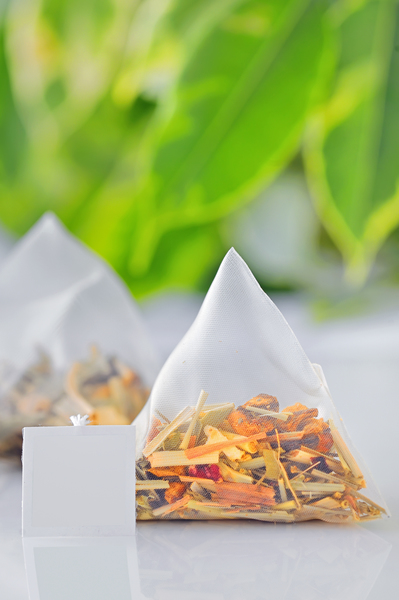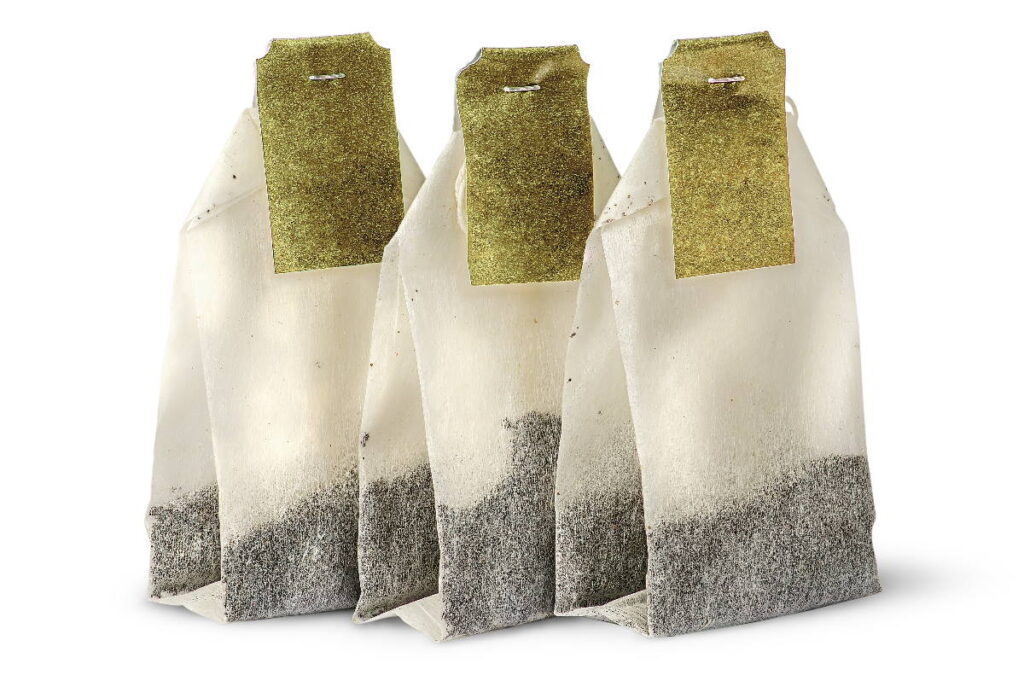Yes, you can compost tea bags…well, tea at least is always compostable, and even after being used, tea has a lot of nutrients that can benefit your compost. Can you compost tea? Yes. It’s natural. Can you compost tea bags? Read more below. Sometimes, but not always, depending on the brand.
In fact, tea leaves are an excellent source of nutrients like potassium, phosphorous, and nitrogen. These are all great additions to any compost. They help to offset the carbon-rich materials in your compost. Tea bags that you have used also add to the moisture of your compost heap.
For tea bags, they are usually compostable, but we need to take a deeper look at what you’re using.
Can I Compost Tea Bags?
We will start by breaking down the tea bag into its components and look at the various pieces because they can vary a bit.
- Tea Bag – A paper tea bag is compostable.
- String – The string holding the tag to the bag is compostable.
- Staple – A staple usually holds the paper tag onto the string. That isn’t compostable.
- Adhesive – Some companies use an adhesive to seal the sides of the bag. If so, that is not compostable.
Some tea bags are plastic, about 20-30% in fact. These are not compostable at home. You can compost them commercially. In general, if the bag is biodegradable, then it is also compostable (but not if it’s plastic.)
Composting Keurig Tea Cups
K-Cups work by sealing a tea bag material inside of the plastic cup. Then the water runs through that. The plastic cup is not compostable. The grounds are compostable, and the filter is usually made of paper. However, the adhesive to attach it to the cup is not compostable.
You can add the string. Usually, though, the tag won’t be compostable, so you may as well just rip that and the staple off.
How Do I Tell if My Tea Bag is Plastic?
You can usually tell if your tea bag is plastic by looking at it. It should say on the box as well. It is probably made of paper if it has a dull, brown fibrous look.

A shiny appearance, looking more like a cloth bag, is probably plastic or nylon, and you should not compost it.

Some manufacturers are now using a material called “PLA,” a plant-based plastic. Great! You say, perfect. Not so quick. To break this down, you need to heat it to over 140 degrees Fahrenheit. You’re just usually not going to get that in a home compost set-up, so best to avoid trying. Into the trash it goes. It should decompose there more quickly than traditional plastic, but not in your compost.
How to Compost Tea Bags
You want to try to compost as much of the bag as possible. You can add the grounds to your compost. If the bag has adhesive, you can rip the sides of the bag off and add the main part to your compost.
To compost a traditional tea bag:
- Wait for it to cool. Don’t burn yourself.
- Ideally, open up the tea bag and empty the tea leaves into your compost. Even if it’s a compostable tea bag, this helps the process.
- If your tea bag is compostable (paper), rip it up and add it to your compost.
- If it’s polypropylene (plastic), then throw it out. If you’re not sure, best to throw it out.
- Remove the staple. That goes in the trash (the world won’t end if you accidentally add a staple. It will rust and then break down.) A paper tag can be added to the compost.
For a K-Cup, it’s actually pretty easy:
- Peel the top off and throw that away (it’s usually foil).
- Empty the grounds into your compost
- Rip the filter out and add that to your compost (if it’s paper).
- Throw out the cup, and recycle it if you can. Unfortunately, they usually aren’t labeled with the type of plastic and so probably aren’t recyclable (boo Keurig!)
What Brands of Tea Bag Are Compostable?
This list is current as of the time of writing. This is a guide but the materials used do change.
| Brand | Bags are Made Out of | Compostable |
|---|---|---|
| Bigelow Tea | Paper, wood pulp, and plant-based materials | Yes |
| BOH Tea Plantation | Polypropylene | No |
| Celestial Seasonings | Natural fibers | Yes |
| Good Earth Tea Bags | PLA | Industrial Only |
| Harney and Sons | BPA free nylon | Yes |
| Lipton | Paper and plastic | No |
| Luzianne (Reilly Foods) | All natural fibers | Yes |
| Lyons | Plant based materials | Yes |
| Mighty Leaf | PLA and 100% unbleached cotton | Industrial Only |
| Numi | Manila hemp cellulose (plant fiber) and cotton | Yes |
| Peets Coffee & Tea | PLA | Industrial Only |
| PG Tips | Paper and PLA | Industrial Only |
| Pukka | Paper made of natural abaca, wood pulps, and plant cellulose fibers | Yes |
| Republic of Tea | All natural fibers | Yes |
| Salada | Abaca fibers | Yes |
| Stash | 100% wood cellulose fibers, no bleach | Yes |
| Tazo and Teavana (Starbucks) | Hemp | No |
| Teekampagne | PLA | Industrial Only |
| Tetley | Perflo paper | Yes |
| Twining | PLA | Industrial Only |
| Typhoo | Natural long fibers and wood pulps, heat sealing plastic polymers | Industrial Only |
| Yogi | Manila hemp (abaca) fibers and wood pulp (free from plastics) | Yes |
| Yorkshire | PLA | Industrial Only |
No matter what you do, adding any portion of your tea bag to your compost is less waste and very good for your compost. It’s a great way to reduce waste while adding valuable nutrients to your compost pile.
